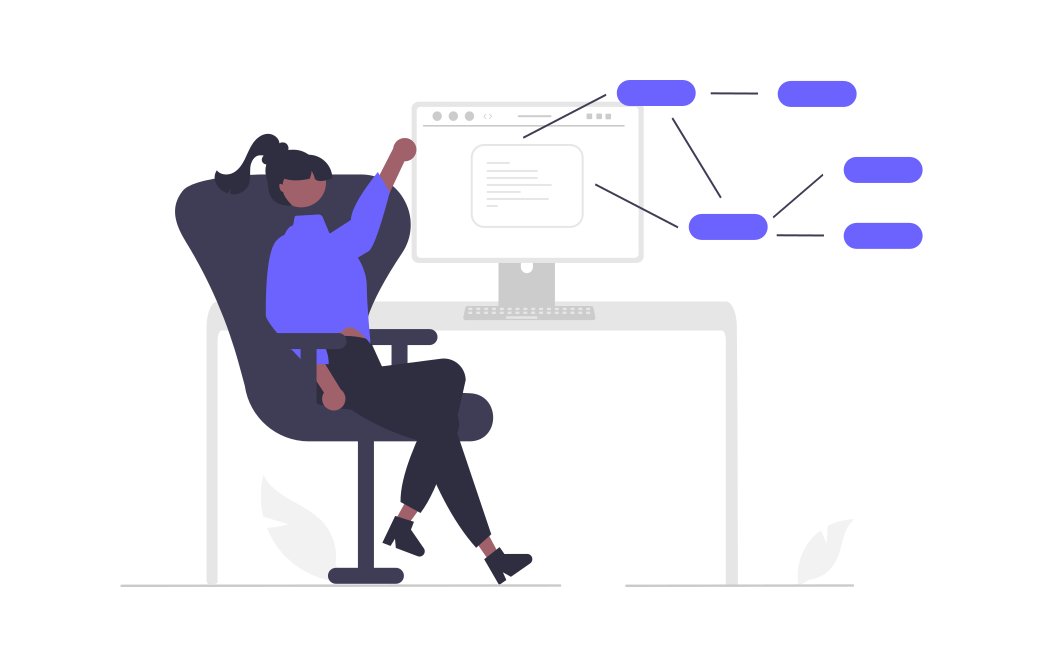Simplifying golang concurrency with go-future
Go comes with good low-level concurrency primitives Goroutines, channels and the sync package. However, using these can often feel like a juggle, care must be taken or it can lead to bugs with race conditions, deadlocks or even data corruption. Preventing these bugs in large codebases is no small feat as has been studied in the code of Uber, Docker, Kubernetes and gRPC.
Now that generics have landed in Go, it’s the perfect time to see if a Future library (go-future) can help simplify our code and make it less error-prone.
Often, concurrent code comes in a few simple patterns that Future is well suited for.
- Run some slow functions at the same time then merge their results together
- Run a slow transformation across a list of data in parallel
- Start to functions at once and use the fastest result
There are some patterns that streaming and channels handle better, but for the majority we can make it easier.

Shared memory or message passing
Using shared memory and message passing are the main ways to do concurrency in go, lets take a quick recap of how you would run something in the background then give the value back to the main thread. It seems silly but just getting a value from a different thread isn’t straightforward in go.
Using shared memory
Some memory is allocated for a variable, then within a go routine that shared memory is written to with the populated value. Locking or a WaitGroup is then needed to protect the value. This practice can lead to corruption as complexity grows and should be avoided.
var recipe MyRecipe
var wg sync.WaitGroup
wg.Add(1)
go func (){
recipe = getRecipe()
wg.Done()
}()
wg.Wait()
// recipe is now safe to use
Using channels
Channels are the built-in way of message passing in go. A reference or copy of the data is passed between threads using the channel. This is considered much safer than using shared memory.
We still need to be careful with channels though, if used incorrectly it can lead to panics, blocking or data corruption.
A quick recap of channel behaviour
- Writing to a full channel blocks until there it has space
- Reading from a channel blocks until there’s a result
- Reading from an empty closed chan gives nil if incorrectly checked can cause corruption.
- Writing to a closed channel panics
- If the channel is closed while a thread is reading from it, it blocks forever, unless its reading with
range

Cautious Cat says
"I need to be careful when using this API, I could get it muddled a few ways"
We create the channel in the main thread giving it a size of 1. Then the go routine writes the value to the channel. The main thread reads from the channel once, which blocks until its ready.
var recipeChan = make(chan MyRecipe, 1)
go func (){
recipeChan <- getRecipe()
}()
recipe := <- recipeChan
Introducing Future
Future is a data type that holds a value that might not be ready yet. It has a Get function to get the value which waits until it’s ready. Get can be called multiple times and it will reuse the value.
In summary
- Runs the function in the background goroutine
Getwaits for then returns the valueGetcan be called get multiple times, returning the same value
Clumsy Cat says,
"That easy enough that I could use it and it wouldn't ever get mixed up, I can stop worrying about data races and focus on what im trying to do."

To get a value from a background thread using Future
A Future is created with a function that returns a value. The main thread then calls Get on the future which blocks until its ready.
recipeFuture := future.New(func() MyRecipe {
return getRecipe()
})
recipe := recipeFuture.Get()
Or even just recipe := future.New(getRecipe).Get()
Common Scenarios
Now that we have the basics, lets look at how you would solve some other common scenarios with Future.
To run two things in the background and merge there results, simply create the futures, then call Get on them in the order you want them.
recipeFuture := future.New(getRecipe)
ingredientsFuture := future.New(getIngredients)
recipe := recipeFuture.Get()
ingredients := ingredientsFuture.Get()
To get the fastest result from two things use Race.
recipeFuture := future.Race(
future.New(getInternetRecipe),
future.New(getBookRecipe),
)
To transform a list of things in the background use Sequence.
var vegetableFutures []future.Future[string]
// …
choppedVeges := future.Sequence(vegetableFutures).Get()
To reuse a future in other futures, simply call Get from both.
recipeFuture := future.New(getRecipe)
vegetablesFuture := future.New(func() Veges {
// maybe we cant start something before the recipe is ready,
// like chopping tomatos we always need tomatos.
r := recipeFuture.Get()
...
})
soupFuture := future.New(func() Soup {
// we can start boiling water before the recipe is ready
r := recipeFuture.Get()
...
})
But what about errors?

Cautious Cat says,
"Future only has one value and most functions in my code return an error as well"
Future is only concerned with concurrency, multi return can easily be layered on top using tuple or something like Result.
For example with tuple.
recipeFuture := future.New(func() tuple.T2[MyRecipe, error] {
return tuple.New2(getRecipe(), fmt.Errorf("oops"))
})
recipe, err := recipeFuture.Get().Values()
But what about performance?
Cautious Cat says, "I heard generics are new and might be slow."

Some benchmarking has been done, and no significant slowdown was observed between the traditional approaches.
Future is intended to be used when your waiting for something that’s slow, like network or filesystem access, something that’s much slower than the internal memory characteristics of Go. Your mileage may vary if you’re in a hot loop.
Conclusion
If you like the look of go-future, head on over to GitHub and go get it. If you liked this article, follow me on twitter @hi_stephen_n 💙 and let me know if your doing something similar in a large codebase.